
Presidential elections were held in Croatia in January 2000, the third since independence in 1991. They were also the first early presidential elections, as they were held due to the death of incumbent president Franjo Tuđman on 10 December 1999, as well as being the last elections held under the semi-presidential system of government, by which the President was the most powerful official in the government structure and could appoint and dismiss the Prime Minister and their cabinet.
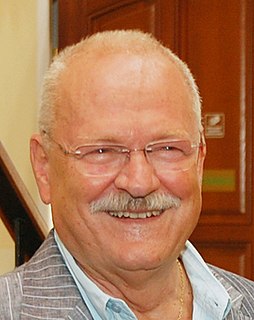
Presidential elections were held in Slovakia on 3 April 2004, with a second round on 17 April. Although former Prime Minister Vladimír Mečiar received the most votes in the first round, he was defeated by Ivan Gašparovič in the run-off.

Presidential elections were held in Macedonia on 14 April 2004, with a second round on 28 April. They followed the death in an air crash in February of incumbent President Boris Trajkovski.
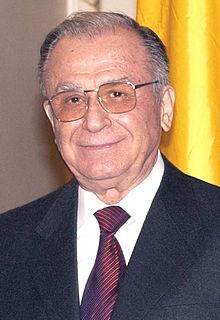
General elections were held in Romania on 26 November 2000, with a second round of the presidential election on 10 December. Former president Ion Iliescu of the Social Democracy Party of Romania (PDSR) was re-elected in the run-off, whilst the PDSR, as part of the Social Democratic Pole of Romania, emerged as the largest party in Parliament, winning 155 of the 345 seats in the Chamber of Deputies and 65 of the 140 seats in the Senate.

Presidential elections were held in Slovakia on 15 May 1999, with a second round on 29 May. Following a constitutional amendment in 1998 that introduced direct presidential elections for the first time, they resulted in a victory for Rudolf Schuster, who received 57.2% of the vote in the run-off.

Presidential elections were held in Belarus on 23 June 1994, with a second round on 10 July. They were the first national elections held in Belarus since the country seceded from the Soviet Union three years earlier. The result was a victory for Alexander Lukashenko, who received 80.6% of the vote in the second round. Voter turnout was 79.0% in the first round and 70.6% in the second.

Presidential elections were held in Bulgaria on 11 November 2001, with a second round on 18 November. The result was a victory for Georgi Parvanov of the Bulgarian Socialist Party, who won 54.0% of the vote in the second round. Voter turnout was 41.8% in the first round and 55.1% in the second.

General elections were held in Yugoslavia on 24 September 2000. In the presidential election, official results initially showed Vojislav Koštunica of the Democratic Opposition led incumbent Slobodan Milošević of the Socialist Party of Serbia in the first round of voting, but short of the 50.01 percent needed to avoid a runoff election. However, Koštunica claimed he was not only ahead, but had finished just a few thousand votes over the threshold to win a first-round victory. Spontaneous protests broke out in support of Koštunica, and Milošević was forced to resign on 7 October and concede the presidency to Koštunica. Revised totals were subsequently released showing Koštunica had indeed won a narrow first-round victory, with just over 50.2 percent of the vote.

Presidential elections were held in Cyprus on 8 February 1998, with a second round on 15 February. The result was a victory for Glafcos Clerides of the Democratic Rally after he finished as runner-up behind George Iacovou in the first round. Voter turnout was 91.7% in the first round and 93.4% in the second.

Presidential elections were held in Moldova on 17 November 1996, with a second round on 1 December. Whilst incumbent President Mircea Snegur received the most votes in the first round, he was defeated in the second by Petru Lucinschi.
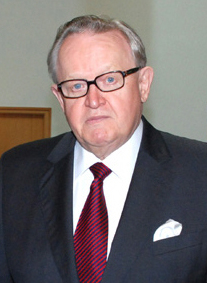
Presidential elections were held in Finland on 16 January 1994, with a second round on 6 February.

Direct presidential elections were held for the first time in Bulgaria on 12 January 1992, with a second round on 19 January. The result was a victory for incumbent President Zhelyu Zhelev of the Union of Democratic Forces, who won 52.8% of the vote in the second round. Voter turnout was 75.4% in the first round and 75.9% in the second. Zhelev had originally been elected as President by the Grand National Assembly in 1990.
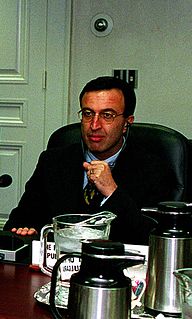
Presidential elections were held in Bulgaria on 27 October 1996, with a second round on 3 November. The result was a victory for Petar Stoyanov of the United Democratic Forces, who won 59.7% of the vote in the second round. Voter turnout was 63.3% in the first round and 61.8% in the second.

Presidential elections were held in Cyprus on 7 February 1993, with a second round on 14 February. The result was a victory for Glafcos Clerides of the Democratic Rally after he finished as runner-up behind George Vassiliou of the AKEL in the first round, a reverse of the 1988 elections. Voter turnout was 92.4% in the first round and 93.3% in the second.
Presidential elections were held for the first time in Estonia on 20 September 1992. However, as no candidate gained over 50% of the votes, a second round was held in Parliament on 5 October 1992 in which Lennart Meri was elected. Voter turnout was 68.0%. Following this election, all subsequent presidential elections have been carried out in the Electoral College or in Parliament.
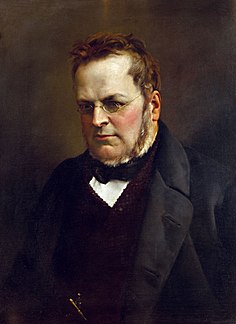
General elections were held in Italy on 27 January 1861, with a second round on 3 February. The newly elected Parliament first convened in Turin on 4 March 1861, where, thirteen days later, it declared the unification of the country as the Kingdom of Italy.

Presidential elections were held in Slovenia on 8 April 1990, with a second round on 22 April. Voters elected the four members of the presidency and the President of the presidency. Ciril Zlobec, Ivan Oman, Matjaž Kmecl and Dušan Plut were elected to the presidency, whilst Milan Kučan was elected President in the second round.

General elections were held in Liechtenstein on 5 February 1922, with a second round on 16 February. They were the first elections held under the 1921 constitution, which resulted in some changes to the electoral system. The result was a victory for the opposition Christian-Social People's Party, which won 11 of the 15 seats.

General elections were held in Macedonia on 16 October 1994 to elect a President and Assembly, with a second round of Assembly elections on 30 October. The presidential election was won by Kiro Gligorov of the Alliance for Macedonia, whilst the parties forming Alliance for Macedonia also won the Assembly elections with 95 of the 120 seats. However, the second round of the Assembly elections were boycotted by VMRO-DPMNE and the Democratic Party, as they claimed there had been irregularities in the first round.

Parliamentary elections were held in the Socialist Republic of Macedonia on 11 November 1990, with a second round on 25 November. They were the first competitive elections in the country's history. VMRO-DPMNE emerged as the largest party, winning 38 of the 120 seats.


















